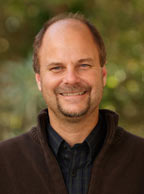Why is the Sky Blue?
By
Westmont
Chemist Explains the Importance of Science
 Surveys of Americans have revealed an ignorance of science. Educators, like Westmont chemistry professor Niva Tro, frequently call for more science instruction in the schools. Tro will speak on “The Importance of Science Literacy: Why Everyone Needs a Basic Understanding of Science,” Thursday, Oct. 11, at 5:30 p.m. at the University Club on Santa Barbara Street.
Surveys of Americans have revealed an ignorance of science. Educators, like Westmont chemistry professor Niva Tro, frequently call for more science instruction in the schools. Tro will speak on “The Importance of Science Literacy: Why Everyone Needs a Basic Understanding of Science,” Thursday, Oct. 11, at 5:30 p.m. at the University Club on Santa Barbara Street.
The talk is part of the ongoing lecture series Westmont Downtown: Conversations about Things that Matter, sponsored by the Westmont Foundation, community members who seek to cultivate healthy ties between the community and Westmont.
“I like to know the why of things,” Tro says. “Why is the sky blue? Why are snowflakes hexagonally-shaped? Our kids can sometimes drive us crazy with these kinds of questions, but they are fundamental to science. If we never asked why, there would be no science.”
Tro, a Westmont alumnus, earned his doctorate at Stanford and conducted postdoctoral research at UC Berkeley before accepting a teaching position at Westmont.
He is best known for his college-level chemistry textbooks. “Chemistry in Focus: A Molecular View of Our World” has reached its fourth edition and is in use at more than 70 colleges and universities. “Introductory Chemistry” will be published in its third edition this January and is in use at more than 220 institutions, the best-selling volume for preparatory chemistry. This year, Tro published “Chemistry: A Molecular Approach,” a general chemistry book which has been adopted at major universities across the country.
“It’s really important for schools at all levels to include the sciences,” Tro says. “It’s imperative that students today understand the science behind critical issues such as global warming, acid rain and ozone depletion.”
Tro says science is a fundamental way to better understand the world around us and attain knowledge that can deepen and enrich our lives.
“An uninformed observer of the night sky may marvel at its beauty but will probably not experience the awe that comes from knowing that even the closest star is trillions of miles away or that stars produce light in a process that could only start at temperatures exceeding millions of degrees,” he says. “For the uninformed, the world is a two dimensional, shallow place. For the informed, the world becomes a deeper, richer, and more complex place.
The Westmont Foundation created Westmont Downtown several years ago to engage the community in meaningful, substantive and lively conversation.
The free lecture is open to the public and reservations are not necessary. Seating is available on a first-come, first-served basis. For more information, contact the Westmont public affairs office at (805)565-6051 or e-mail pubaffairs@westmont.edu.
Filed under
Academics, Campus Events, Faculty and Staff, Lectures